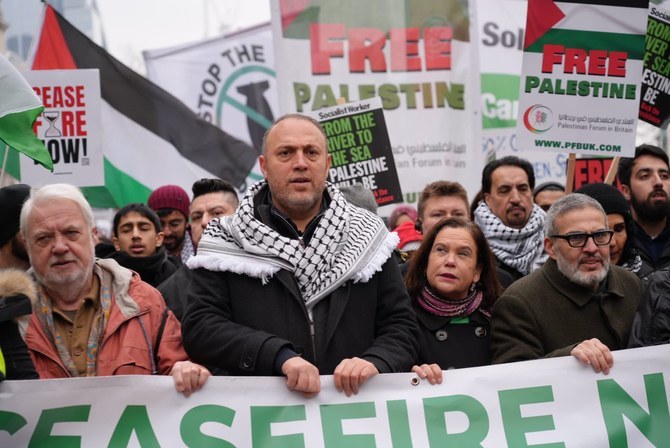LONDON: Eight relatives of the Palestinian ambassador to the UK have been killed in an Israeli airstrike in the Gaza Strip.
Husam Zomlot took to X to reveal that an image of a dead 7-year-old girl circulating online is Sidra Hassouna, his wife’s cousin.
The graphic image shows the body of the girl in the ruins of a building hit in the Gazan town of Rafah on Monday.
Zomlot wrote: “The impact of the Israeli missile was so powerful it flung her out, leaving her mutilated body dangling from the ruins of the destroyed building in Rafah 48 hours ago.”
He said her twin Suzan was also killed in the strike along with their parents Karam and Amouna, grandparents Suzan and Fouzy, uncle Muhammad and 15-month-old brother Malik.
“The family had been displaced from the north of Gaza and took shelter in Rafah. We will be relentless until those responsible (are) brought to justice,” Zomlot added.
The post prompted a series of condolences from prominent UK politicians, including John McDonnell, former shadow chancellor.
Labour MP Zarah Sultana wrote to Zomlot: “My deepest condolences to you and your family for your immeasurable loss, Husam. For Sidra, and the tens of thousands of Palestinians who have been killed, we will continue to fight for accountability and justice.”
Labour MP Richard Burgon wrote: “Husam, my deepest condolences. I cannot begin to imagine the pain you and your family are going through.
“A ceasefire is so desperately needed to put an end to the killing and suffering and those responsible for this must be held to account.”
Israel began a series of assaults on Rafah in southern Gaza by the Egyptian border this week. Over 1 million Palestinians are thought to be sheltering in the area.
Local authorities say the Israeli attacks have killed at least 67 people this week, with more than 28,663 — mostly women and children — killed since Israel’s military operation in Gaza began in October.
Senior Western politicians met in Munich on Friday at a security conference, hoping to convince Israel against pressing ahead with its assault on Rafah.
US President Joe Biden on Thursday warned Israel against military escalation in the town if it did not have a realistic strategy for protecting Palestinian civilians.















